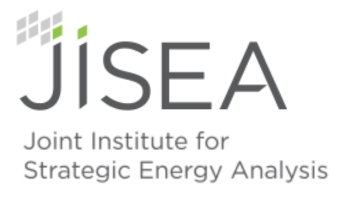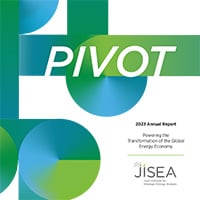News and Blog
The Joint Institute for Strategic Energy Analysis (JISEA) increases the impact of its analysis by staying engaged in and helping to shape the global energy dialogue. News and blogs about JISEA, JISEA leadership, JISEA partners, and JISEA programs are highlighted below.
Want more? Sign up for our email news or follow us on Twitter.

JISEA and Colorado State University Plant Seeds of Sustainable Agriculture Through New Collaboration
Sustainable Agriculture Catalyzer convenes stakeholders to inform agricultural sustainability and resilience.

JISEA Convenes Science Fiction Storytellers Team and NREL Researchers To Envision the Future
Authors and NREL researchers collaborate to craft visions of clean energy futures.

American-Made Program Shines Light on Innovation at RE+
Prize program has become a mainstay of the nation’s biggest renewable energy conference, connecting prize competitors with partners, sponsors, and more.

Staff Spotlight: Danny Zimny-Schmitt Goes the Extra Mile
How one Joint Institute for Strategic Energy Analysis researcher expanded his worldview, one county at a time.

2024 JISEA Annual Meeting Convenes Diverse Clean Energy Voices To Address Emerging Challenges
JISEA convenes crosscutting clean energy experts from research, industry, universities, and nonprofits to highlight priorities in institute focus areas.

JISEA Launches Sustainable Agriculture Catalyzer To Examine Cobenefits of Decarbonization
Research looks at how strategies to reduce emissions in agriculture lead to benefits in health, socioeconomics, and more.
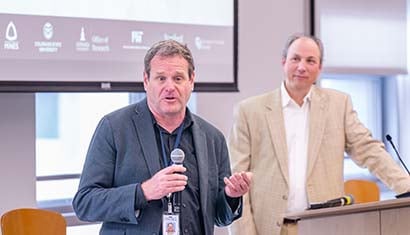
Looking Back at the Impact of the Energy and Atmospheric Systems Catalyzer
Energy and Atmospheric Systems Catalyzer Completes 3-Year Term Accelerating Research at the Intersection of Climate, Air Quality, and Energy Systems
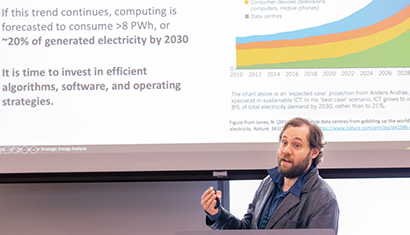
Catalyzer Leading Path to Greener Computing
In its second year, the Green Computing Catalyzer builds resources to inform more energy-efficient computing.
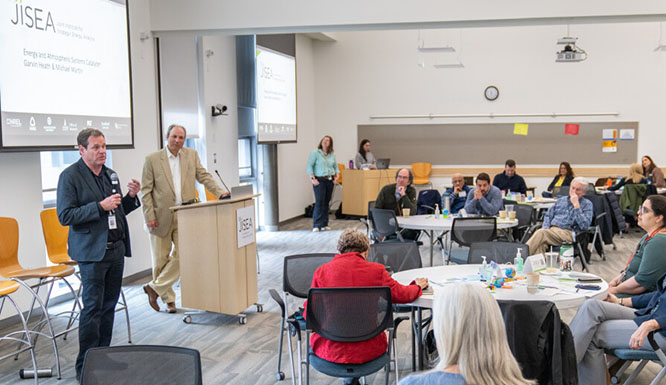
Save the Date: 2024 JISEA Annual Meeting Dates Announced
The 2024 JISEA Annual Meeting will take place Feb. 26–27 at the National Renewable Energy Laboratory (NREL), moving it up from its traditional springtime window.
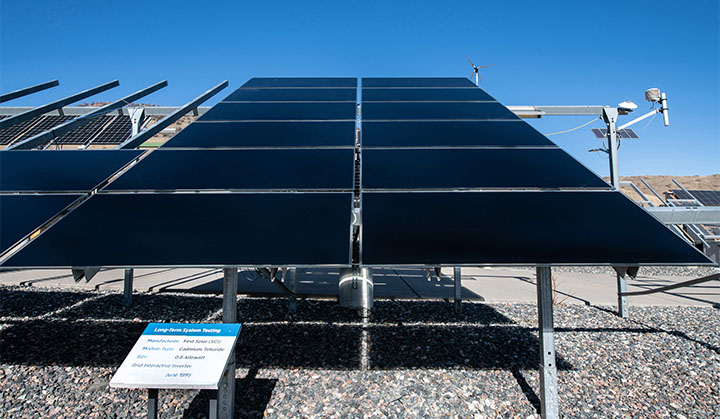
What Is the Recipe for First Commercial Success? Analysts Study Lab-to-Market Pathways for Clean Energy Technologies
Analysts at the Joint Institute for Strategic Energy Analysis study lab-to-market pathways for clean energy technologies.
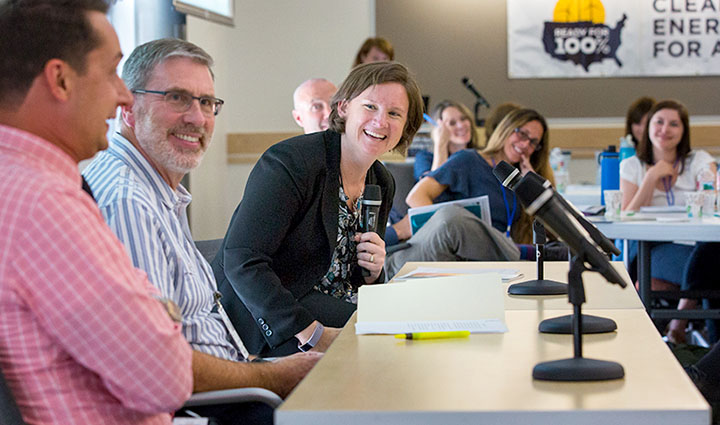
Elizabeth Doris Takes the Helm of JISEA as the New Director
Elizabeth Doris brings a fresh vision to the institute that will leverage clean energy research and partnerships in new ways to address emerging, complex challenges.
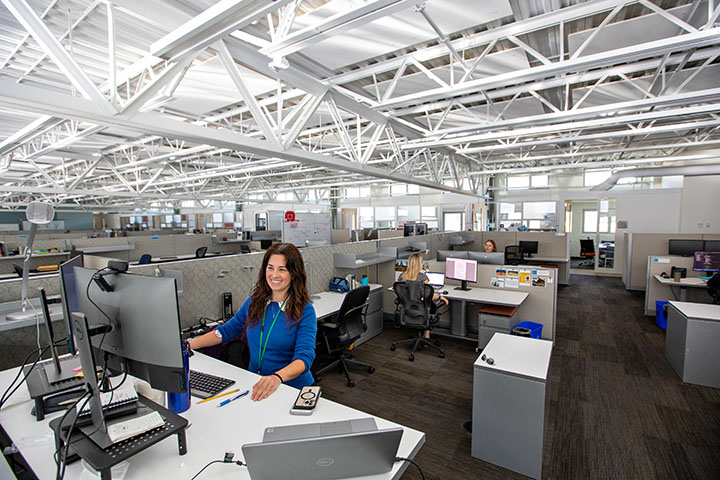
Considerations To Achieve a Sustainable U.S. Commercial Building Stock
Study identifies drivers, barriers, and costs of adopting building sensors and controls systems.
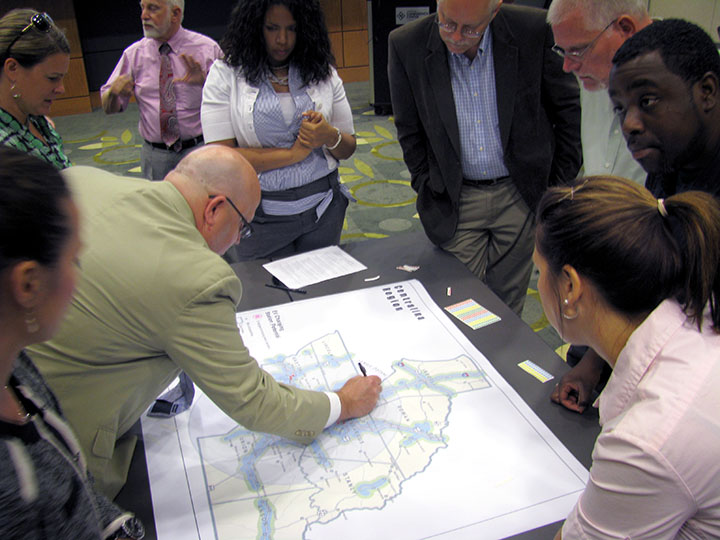
Five Key Best Practices to Community Energy Planning
JISEA's Sustainable Communities Catalyzer publishes best-practices guide to supporting community energy planning.
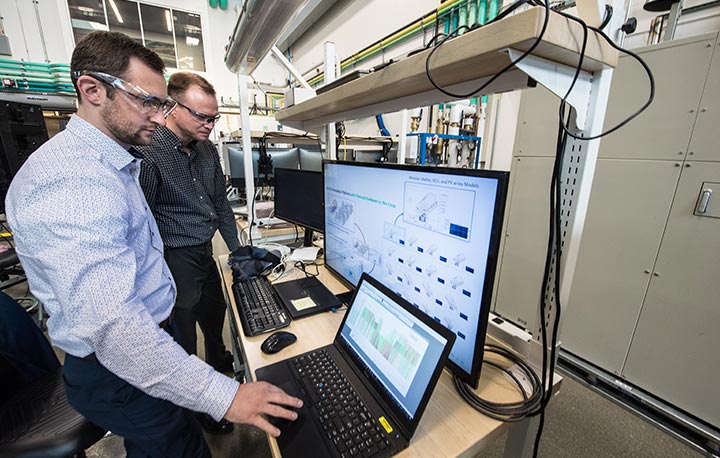
JISEA Launches Green Computing Catalyzer To Reduce Energy Use and Carbon Emissions of Computing Systems
The third catalyzer in the JISEA Catalyzers initiative will explore algorithmic energy efficiency, in addition to ways to limit energy usage of computing and potential pathways to reuse, repair, or recycle hardware products and materials.
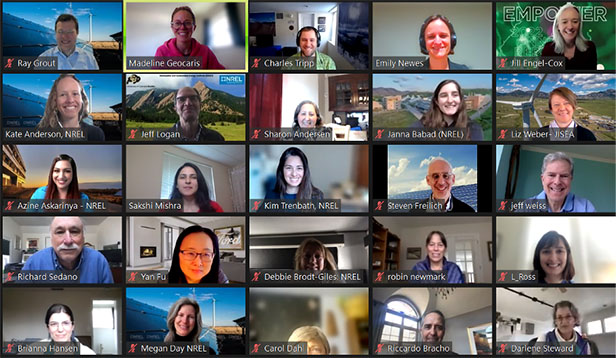
2022 JISEA Annual Meeting Discusses Diverse Research, Announces New Director
The JISEA annual meeting centered on the theme of "Empower" and highlighted collaborative research projects from the past year.
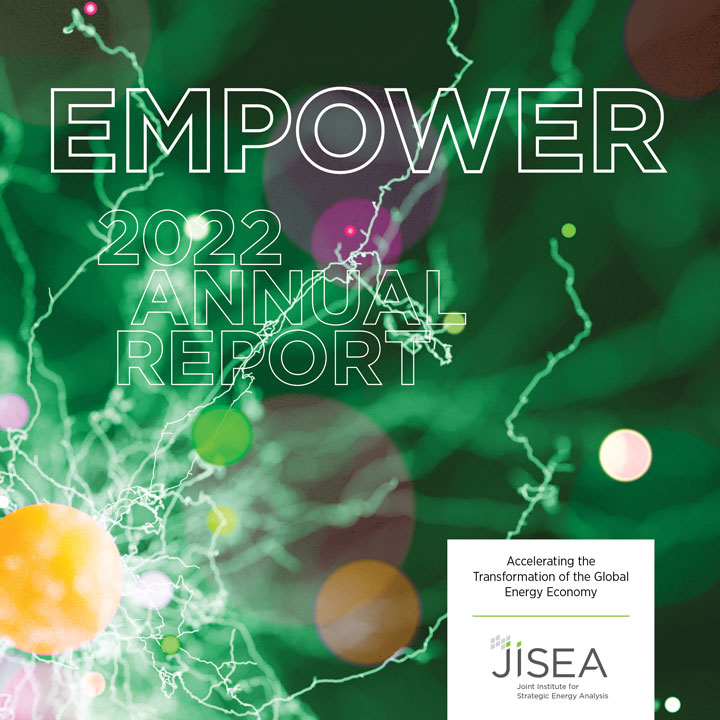
The 2022 JISEA Annual Report
The 2022 JISEA annual report, highlighting the institute’s progress over the past year to accelerate the transformation of the global energy economy, is now available.
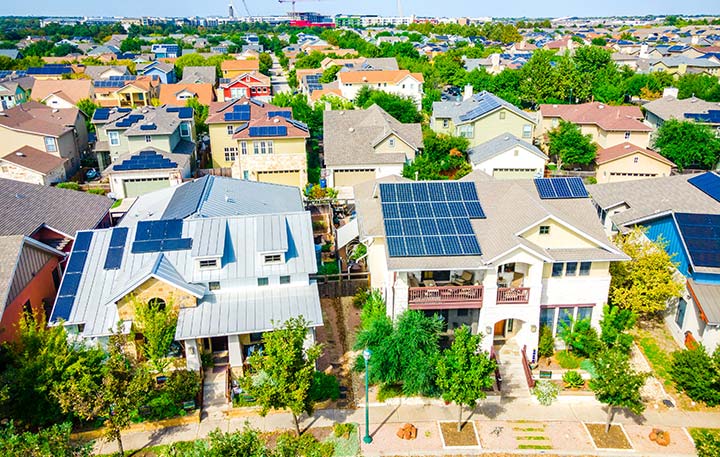
County-Level Energy Data and Analysis Empowers Local Energy Planning
The JISEA Sustainable Communities Catalyzer compared technical generation potential and levelized cost of electricity for renewable energy technologies in every county of the United States.
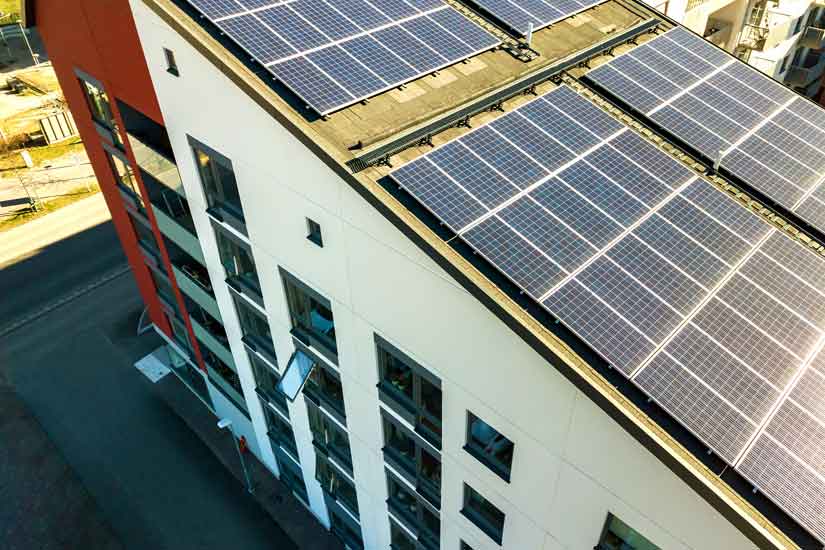
JISEA Sustainable Communities Catalyzer Advances Equitable Renewables Deployment
New modeling approach intersects equity metrics and renewable energy technical potential to prioritize communities that need these benefits the most.
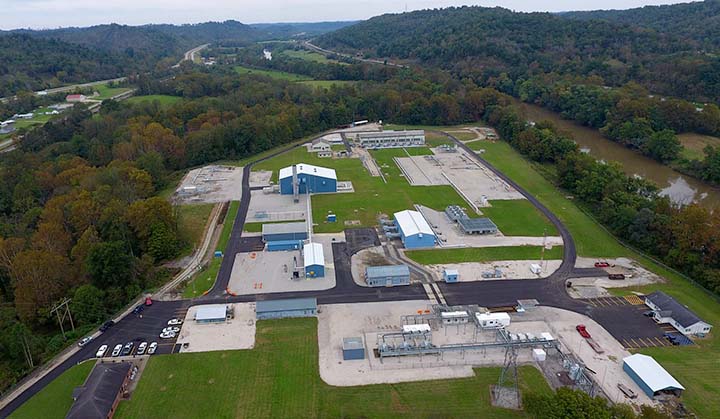
Clean Energy Opportunities in the Oil and Gas Sector
To help the oil and gas industry decarbonize operations, increase resilience, and conserve high-value resources, JISEA studied potential benefits of incorporating clean energy technologies in two parts of the oil and gas value chain.
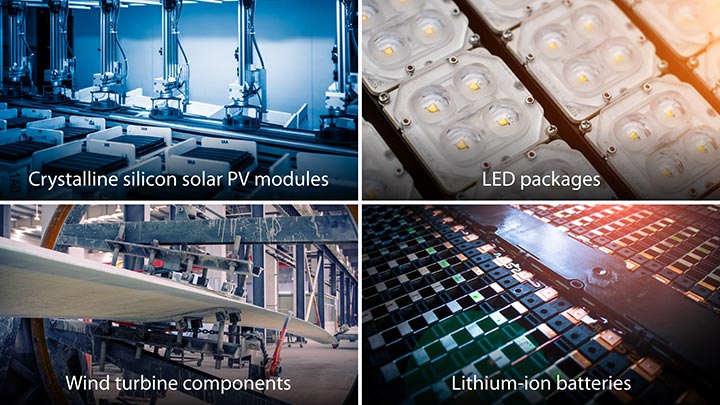
Top Five JISEA Highlights of 2021
2021 was filled with collaboration and scientific advancements at JISEA. Read about a few of the many highlights from the past year.
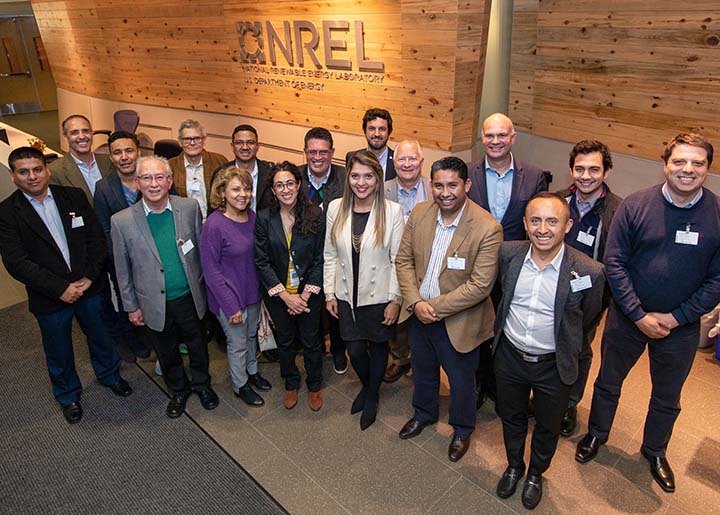
Riccardo Bracho Advises Energy Transitions in Countries Worldwide, Including His Native Mexico
After two decades working in finance, NREL analyst Riccardo Bracho pivoted to an energy career. Today he leads analysis of international power sector transformations.
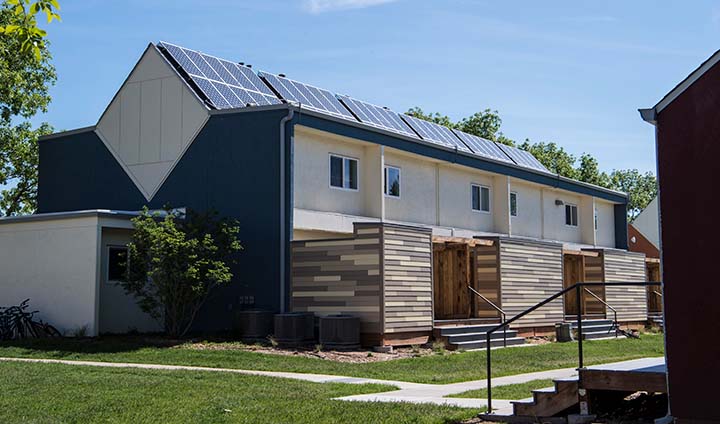
Sustainable Communities Catalyzer Is Advancing Equitable Energy Transitions Through Collaboration
The JISEA Catalyzers program is accelerating research capabilities for sustainable communities.

Experiences as a 2021 Intern at the Joint Institute for Strategic Energy Analysis
The four 2021 interns at the Joint Institute for Strategic Energy Analysis share their experiences and what’s next in their clean energy careers.
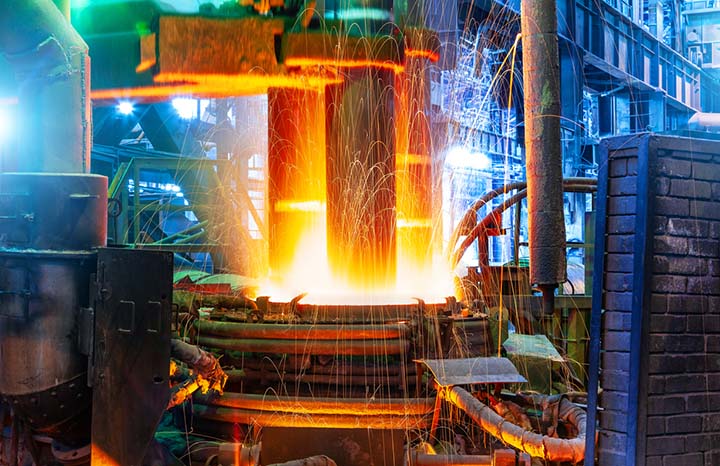
Industry Proves to be a Promising Prospect for Future Grid Flexibility
Study identifies opportunities for energy storage to provide further grid flexibility.
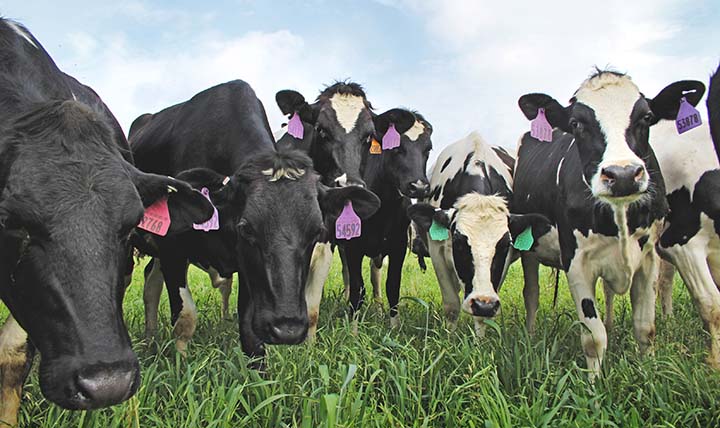
Profitable, Clean, and Efficient Farming Starts with Renewable Energy Sources, Sustainably Produced Biofuels
Energy is essential to agriculture, from fuel needed to operate machinery to the electricity necessary to heat or cool livestock and greenhouses. Learn how JISEA analysts are recommending renewable energy sources to continue fueling our agricultural systems.
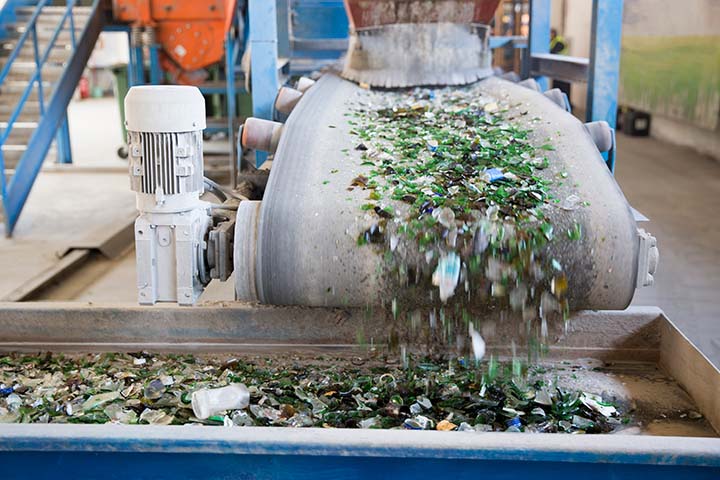
To Toss, Repair, or Recycle? How Human Behavior Affects the Fate of Aging Solar Panels
For the first time, agent-based modeling has been applied to end-of-life solar photovoltaic management to understand how people make decisions about recycling or reusing modules.
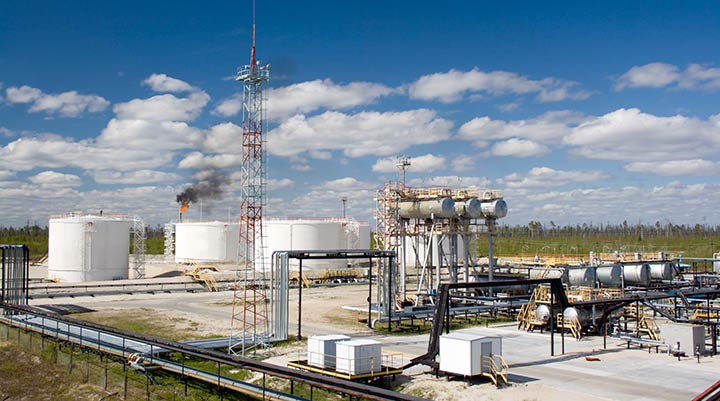
JISEA-Supported Analysis Helps Close the Gap in Inventories for Emissions From U.S. Oil and Natural Gas Production
Why are inventories for methane emissions from oil and natural gas production so difficult to estimate? JISEA and research partners developed a new approach to close the gap in data and identify super-emitters at the equipment level.

Liz Weber, Rising Star in Clean Energy Project Management, Leads High-Impact Projects
JISEA program manager Liz Weber knew in 2010 she was ready to become an environmental leader. She didn’t know she would become a leading project manager within the U.S. Department of Energy complex.
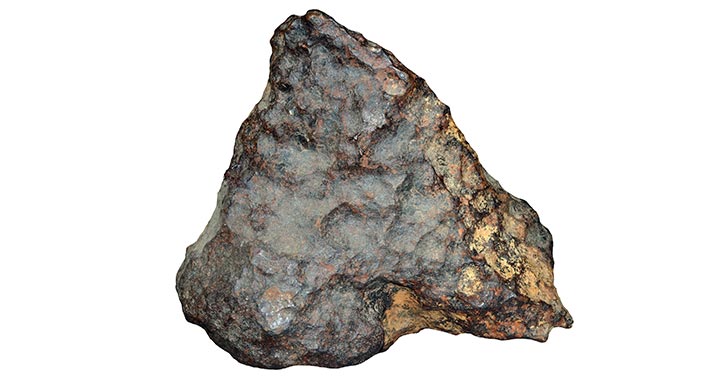
Cobalt Supply Chain Analysis Links Electric Vehicle Manufacturing and Deployment
JISEA analysts applied the Benchmark methodology to understand how increasing demand for cobalt could impact the larger electric vehicle manufacturing supply chain.

JISEA Catalyzers will Incubate Clean Energy Research Capabilities
To bolster its vision of solving future energy challenges, JISEA has launched the JISEA Catalyzers, an initiative focused on accelerating the clean energy transition through collaboration.
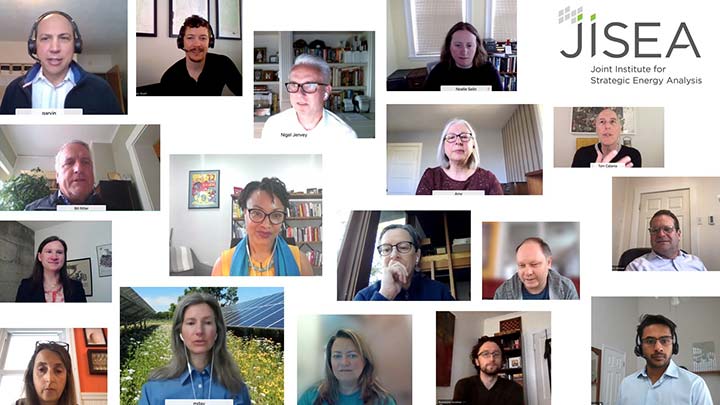
2021 JISEA 11th Annual Virtual Meeting Connects, Engages, and Educates Attendees
The Joint Institute for Strategic Energy Analysis hosted its signature annual meeting in a virtual format this year, including dynamic discussion among esteemed panelists and diverse attendees.

The 2021 JISEA Annual Report
The 2021 JISEA annual report, is a collaborative product that highlights the institute's progress over the last year to help accelerate the transformation of the global energy economy.
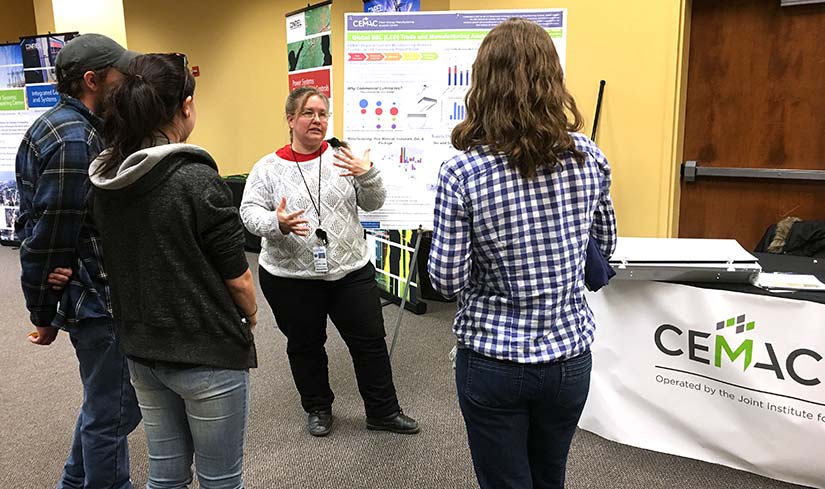
Samantha Reese: Connecting Science to Industry with Supply Chain Analysis
As a JISEA/NREL clean energy manufacturing analyst, Samantha Reese puts early-stage research problems in context of techno-economic tradeoffs and technology potential because "no matter how awesome a technology is, it won't be adopted if it's not cost competitive."
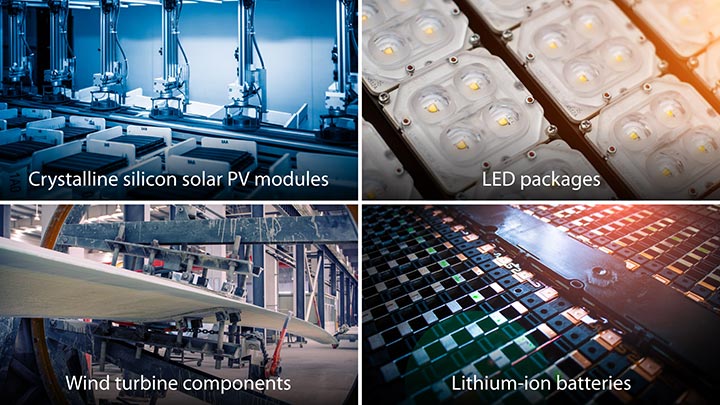
CEMAC/JISEA Releases Global Clean Energy Manufacturing Data and Insights
The latest Benchmarks of Global Clean Manufacturing report assesses market characteristics, global trade flows, and manufacturing value added for four clean energy technologies to support deeper insights into balance of trade effects on upstream materials.
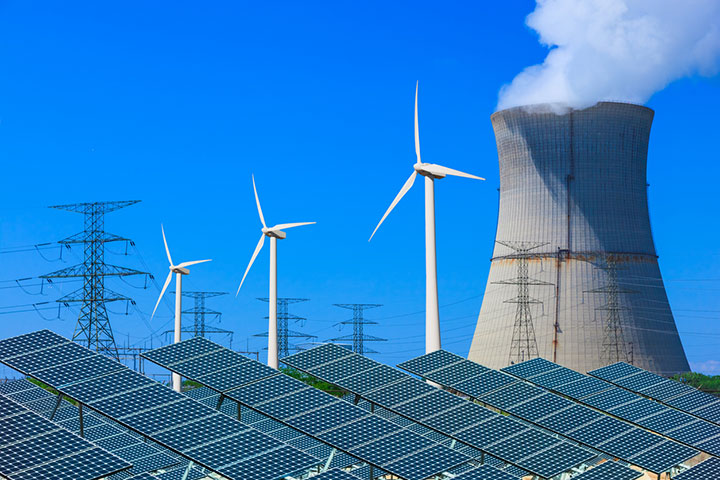
Nuclear–Renewable Synergies for Clean Energy Solutions
Since 2011, JISEA has supported analysis on the potential of increased integration of nuclear and renewables in the evolving power grid to provide clean electricity and another commodity.

Garvin Heath, JISEA Analyst, Is Defining Circularity for Next-Generation Energy Materials
Moving from a linear to a circular economy for energy materials starts with research and development. JISEA Analyst Garvin Heath and a team of researchers are leading the charge.
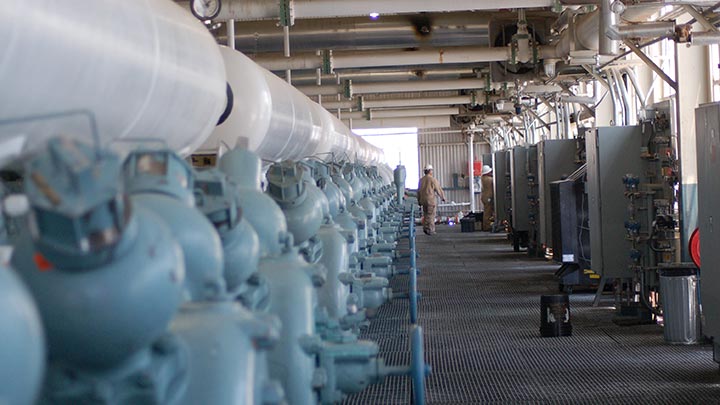
Coordinated System Could Sync Up Natural Gas and Electric Sectors
According to a new JISEA study, streamlined coordination between the natural gas and electric sectors can alleviate many challenges that natural gas operators face with the evolving U.S. power grid.
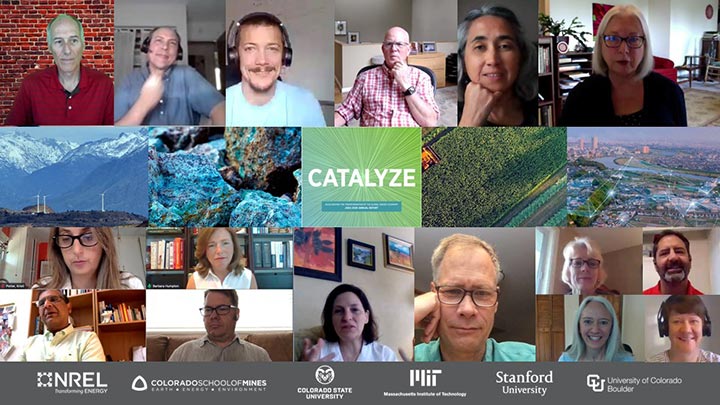
JISEA 10th Annual (Virtual) Meeting: Sustainability, Big Data, Business Systems
Recap from JISEA's 10th annual meeting held virtually discussing the biggest questions in the clean energy transition.
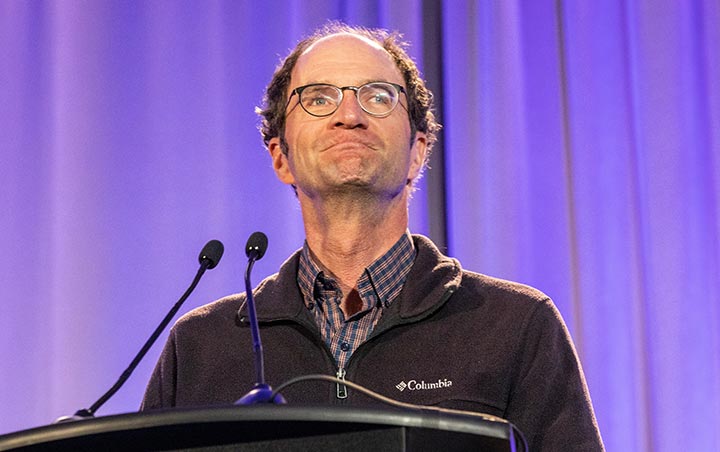
Jeff Logan, Long-Standing JISEA Analyst, Has a World of Curiosity
After working in China in the early 90's and seeing the smoke billowing from the factories, Jeff Logan found his passion in clean energy.
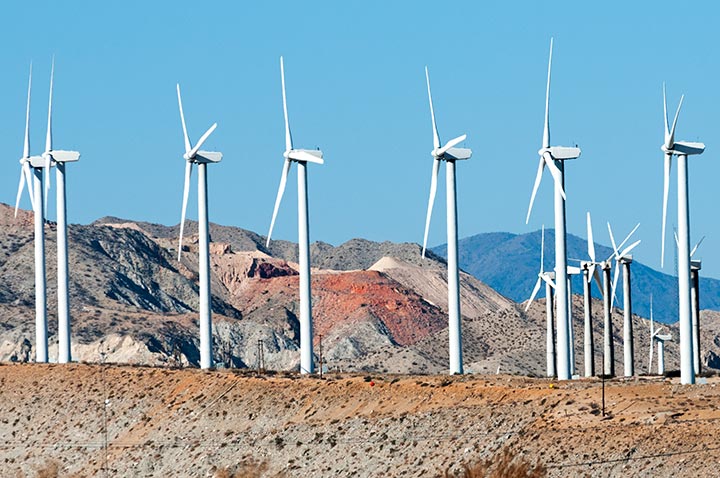
Renewables in Mining: Rethinking How Energy Is Generated and Used
In 2015, there were 600 MW of renewable energy projects sited on or serving mine sites. By the end of 2019, there were nearly 5 GW of renewable energy projects installed or planned for mine sites around the world. This growth, however, has not been without headwinds. Many questions need to be answered to enable adoption at scale.
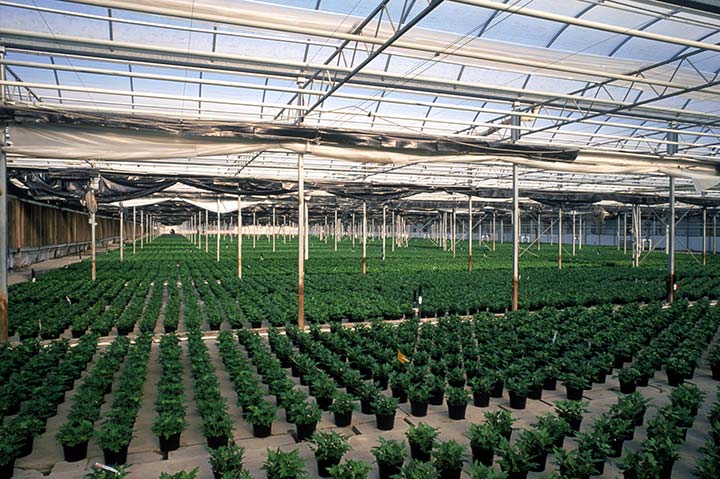
Hungry for Analysis: JISEA Workshop Considers Sustainability in Food Systems
In partnership with the National Renewable Energy Laboratory and Colorado State University, JISEA hosted a three-day virtual workshop to explore sustainable energy opportunities in food systems.
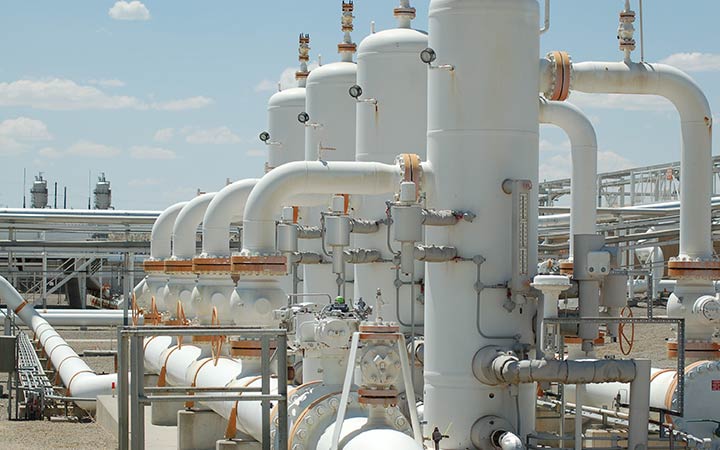
Intra-Day Coordination of Natural Gas and Electricity Offers Cost and System Benefits
The availability of low-cost natural gas in the United States—driven largely by the shale gas revolution—has driven many electric power systems to become more reliant on natural gas, but more coordination is needed to ensure reliable, affordable electricity supply.
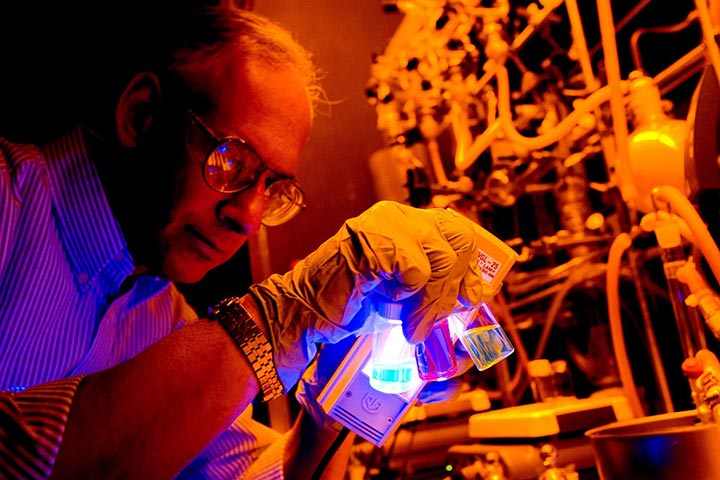
A Conversation with Steven Freilich, New JISEA Executive-in-Residence
JISEA welcomes Steven Freilich to the team this month as the new executive-in-residence to help guide technology implementation that meets real marketplace needs.
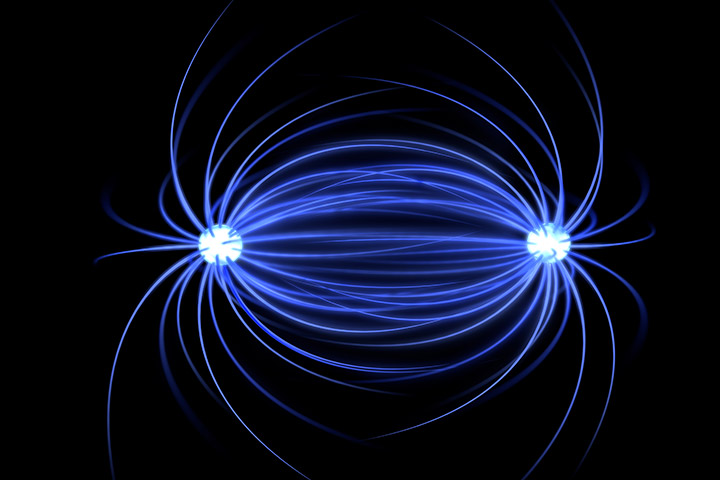
The Cooling Superpower of Magnets: Could It Be the Future of Refrigeration and AC?
Could magnets be the future for AC and refrigeration? In this study researchers discuss the materials reserves throughout the world.
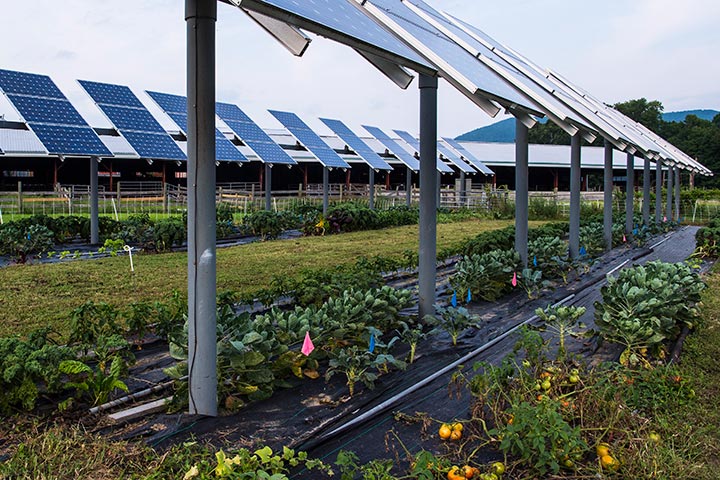
Virtual Meeting Showcases JISEA's Diverse Findings in Power Systems and Industry and Agriculture
JISEA hosted a half-day virtual meeting featuring six projects within power systems and industry and agriculture.
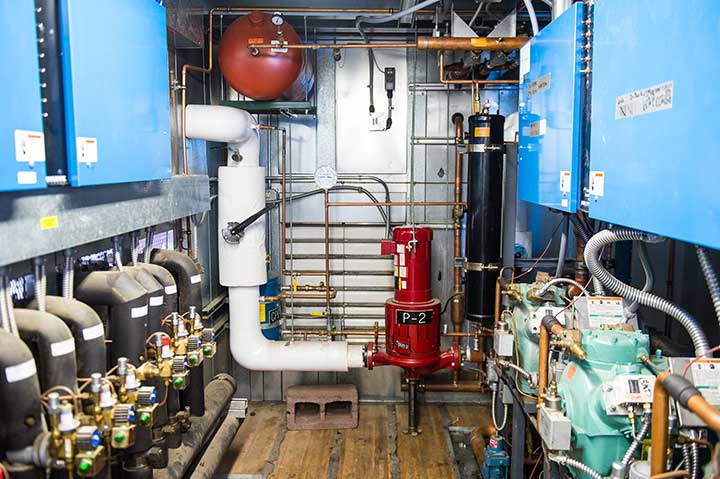
Refrigerants: The Fluid That Changed the World and Will Change It Again
What is the current state of new and existing alternative refrigerants that are safe, effective, and do not deplete the ozone?

LEDs: A Bright Spot for Domestic Manufacturing
In this study JISEA analysts look at the adoption of LED luminaires and energy consumption which could benefic domestic economies.
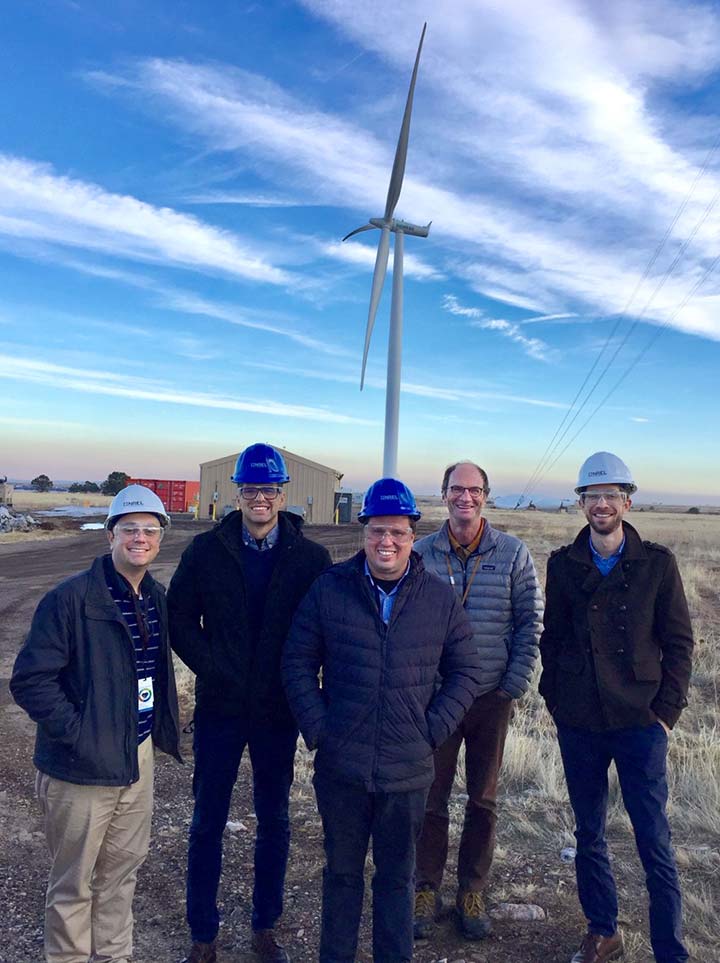
NREL Hosts Technical Exchange to Boost Brazil's Power Sector Transformation
NREL hosts researchers from Brazil's Energy Research Office to exchange information to boost Brazil's energy sector.
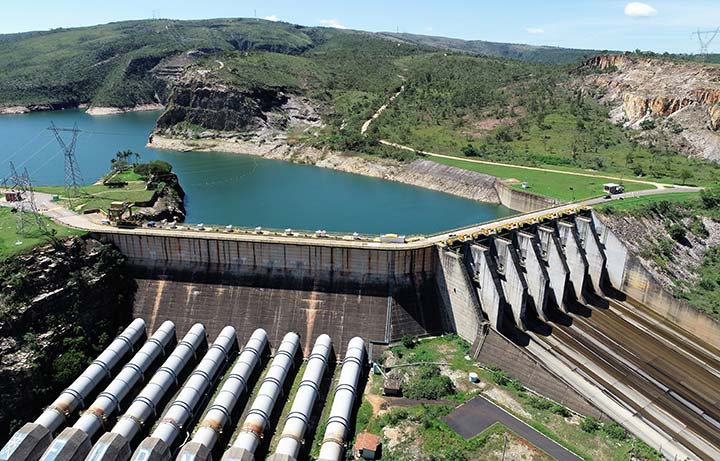
South American Power: Challenges Building a Resilient, Flexible System
The global energy landscape is rapidly changing. Find out how JISEA analysts researched the unique challenges these countries face in switching to sustainable power systems.
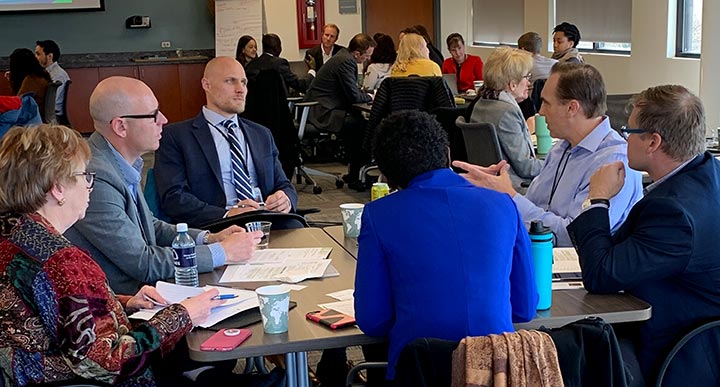
Mining for a Solution: Integrating Renewable Energy into Mining Operations
JISEA and partners convene a meeting of the minds in Golden, CO to discuss how to bring renewables into mining operations.
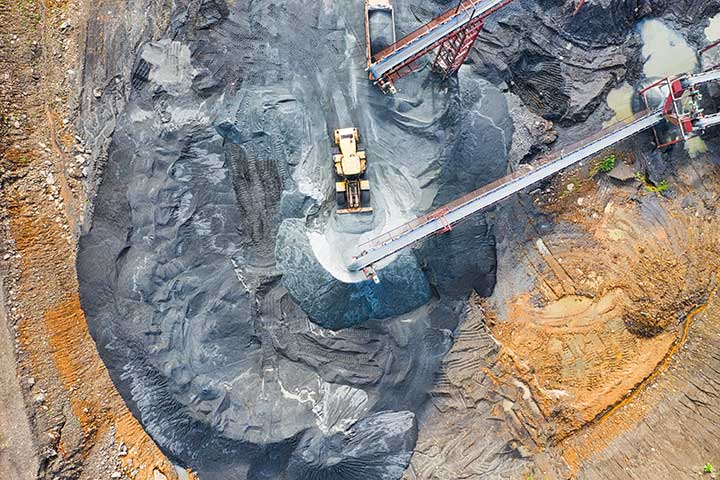
From Mines to Manufacturer: Tracing the Li-Ion Battery Supply Chain
This report shows how the supply chain for battery materials such as cobalt & lithium get from the mine to your garage.
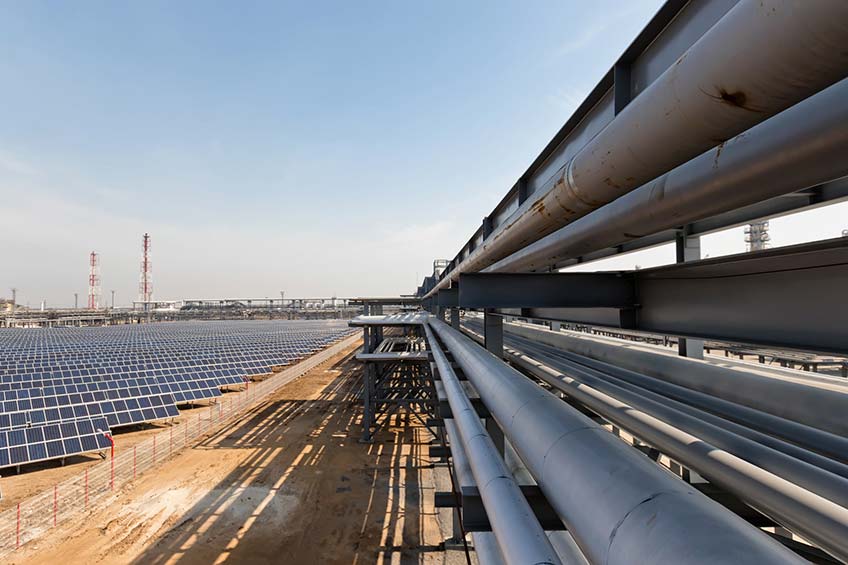
The Grid-Pipeline Two Step: Managing the Electricity-Gas Interface
The 2014 polar vortex was the canary in the coal mine. Historically low temperatures across several regions of the United States spurred a spike in natural gas and electricity demand. A shortage of natural gas supply to meet both heating and electricity needs led to power plants curtailments, and the electrical system came close to having insufficient supply to meet demand.
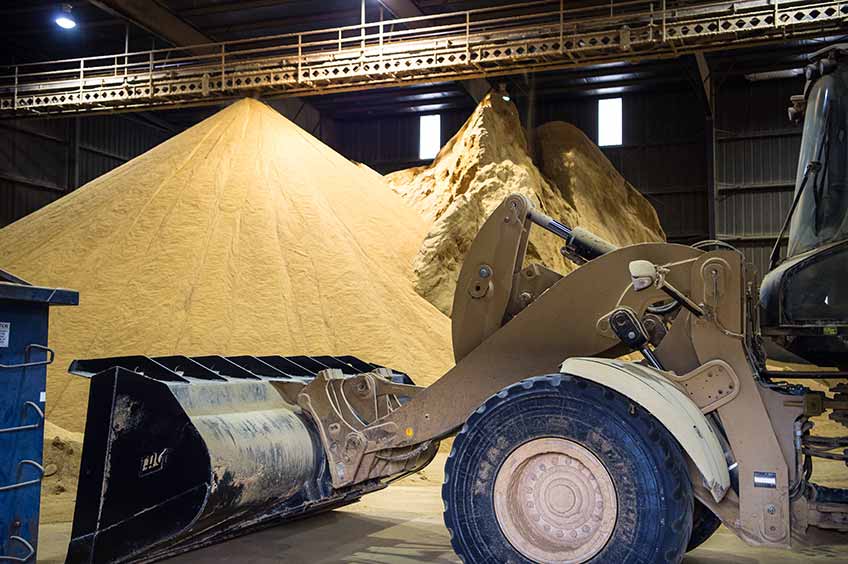
From Farm to Refinery: Moving to a Bio-Based Economy
In their new report, CEMAC researchers take a closer look at the agricultural equipment and manufacturing requirements to transform upwards of 340 million tons of biomass into biofuels and other bioproducts.

Power Outage Price Tag: Calculating the Consumer Costs
What are the consumer cost drivers in power outages? NREL/JISEA researchers calculate the costs in their new article.
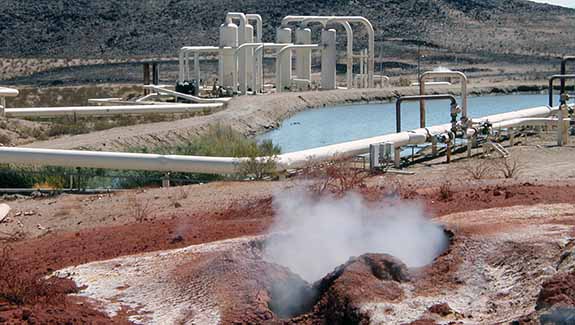
Industry’s Hunger for Heat Drives Energy Demand
The study identifies alternative thermal sources that can satisfy industrial heat demand while addressing environmental concerns
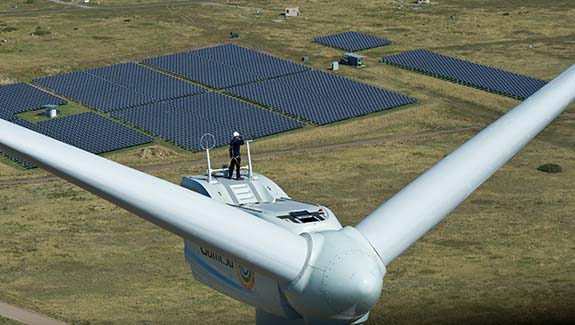
Hybrid Energy Systems for Clean Energy Manufacturing
Coupling variable renewable energy sources, such as wind and solar, with battery storage is necessary to transition to a predominately renewable grid.
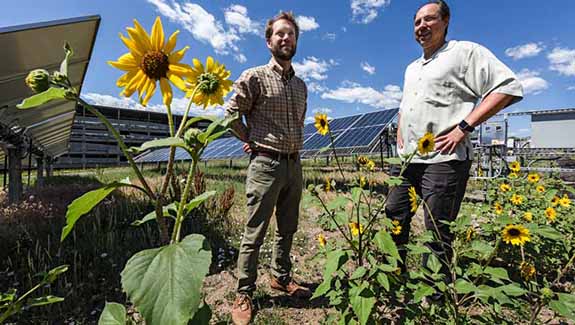
Researchers Propose Techno-Ecological Synergy for Solar-Sustainability Win-Win
In a new paper in Nature Sustainability, NREL/JISEA researchers Jordan Macknick and Garvin Heath help propose a techno-ecological synergy (TES) framework to help capture win-win outcomes in solar energy.
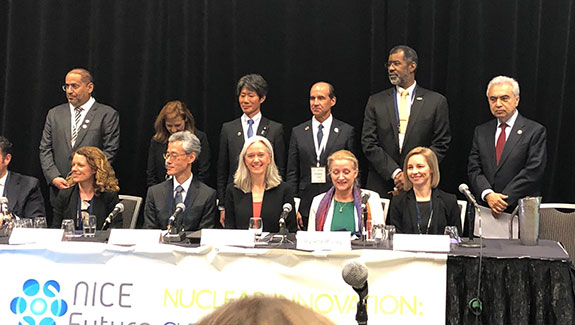
JISEA at CEM10: Working toward a Clean Energy Future
JISEA ventured north to Vancouver for CEM10. Learn more about our participation in the 10th Clean Energy Ministerial.
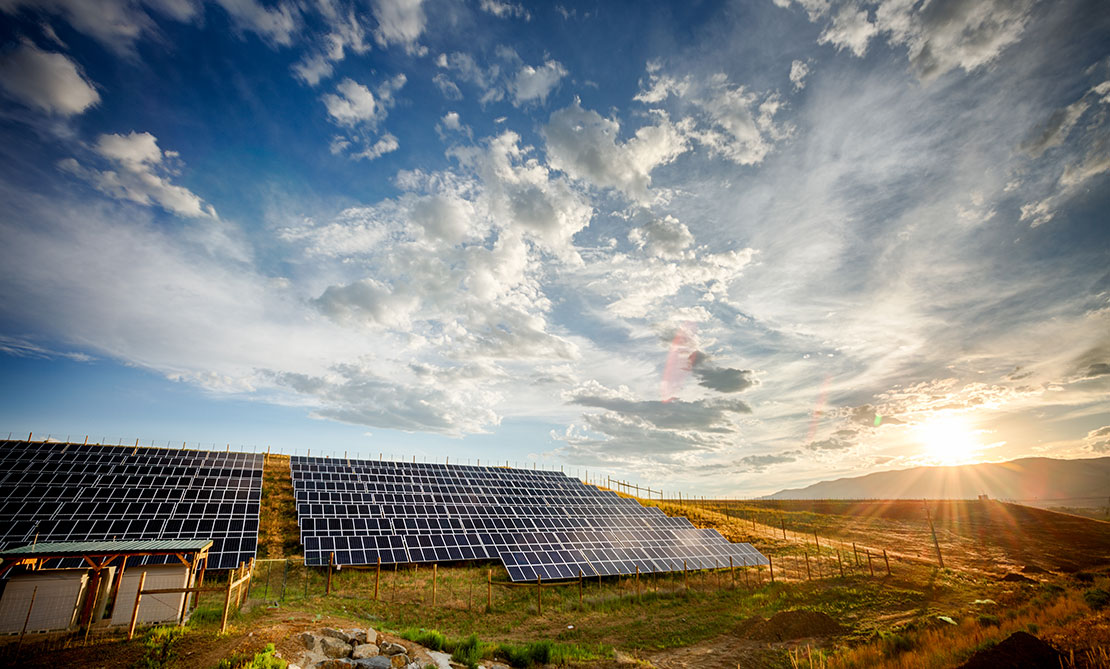
When the Power Goes Out, Which Fuel Will Keep Lights On—at the Lowest Cost?
When the power goes out, resilience rules: which fuel do you choose? Our new technical report examines the real-world costs and benefits of natural gas- and diesel-driven power generation—and takes a closer look at grid-connected versus backup-only systems.

Knowledge Is Power: Understanding Energy-Efficient Window Installation Costs and Consumer Drivers
The key to driving energy-efficient window replacements is knowledge. Learn more about our assessment of the total installed cost of these windows in a new CEMAC technical report.
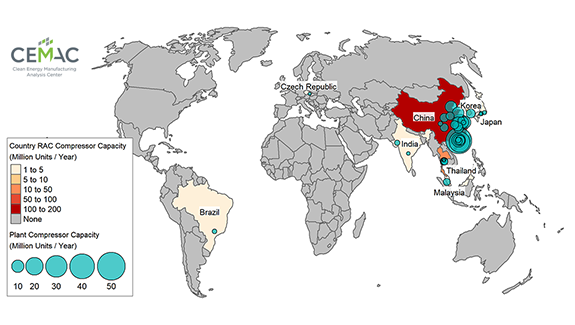
Keeping Temperatures and Emissions Low: A Global Supply-Chain Analysis of Air-Conditioning Compressors
Keep cool and carry on: Our new CEMAC report zeros in on the air-conditioning industry's efforts to sustainably meet growing cooling demand.

2019 JISEA Annual Report Captures Highlights of a Transformative Year
Meaningful transformation is transpiring across the power and wider energy sector worldwide. The shale gas revolution continues to shift the U.S. power industry, as well as the global economy. The demand for electric vehicles continues to grow, and electric generation continues to get less expensive, more efficient, and cleaner. And in its ninth year, the Joint Institute for Energy Analysis (JISEA) is continuing to fuel and inform this energy evolution.
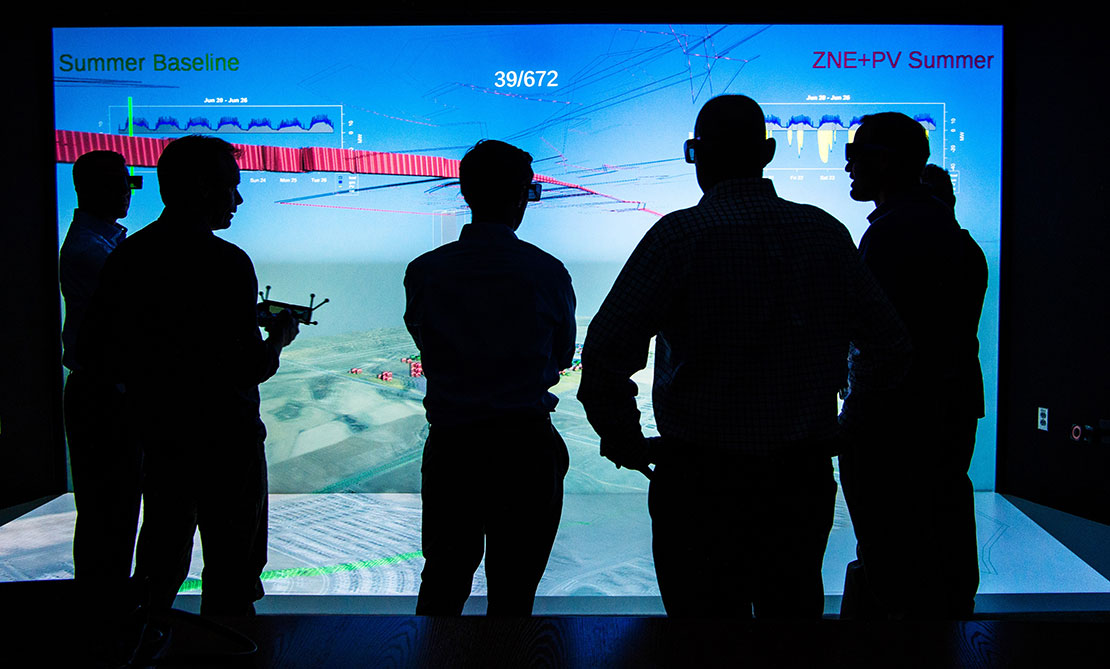
Clearing the Path to Market: Enabling Energy Hardware Innovation and Incubation
Part analysis, part score card, a new JISEA white paper sheds light on the road to market for energy entrepreneurs and examines how a variety of support approaches can help them jump the hurdles along the way
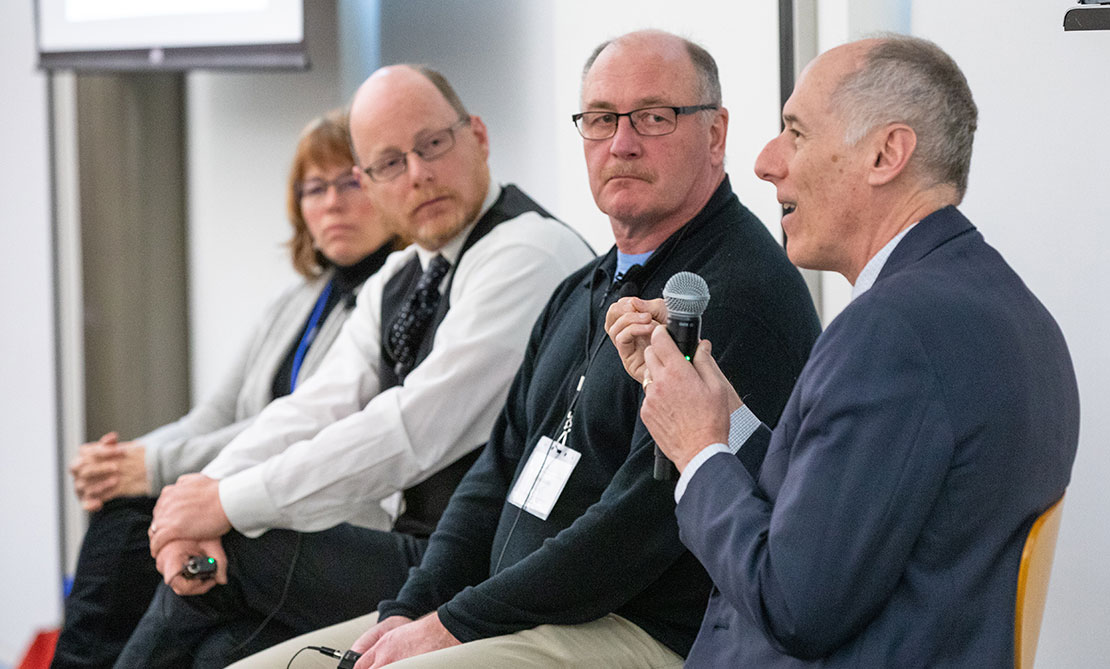
Energy Systems Transformations and Clean Energy for Industry and Agriculture the JISEA/CEMAC Annual Meeting
The meeting explored the metrics for understanding the global manufacturing of energy technologies, as well as how to improve materials flow within the supply chain and the lifecycle of products important to the development of energy technologies.

Good Practices Make Good Neighbors: Innovations in Urban/Suburban Oil and Gas Operations Can Minimize Impacts, Reduce Risk
As the O&G industry expands into urban/suburban areas, JISEA analysts examine the innovative practices and technologies being implemented to help mitigate negative community impacts of oil and gas operations.

Joint Institute for Strategic Energy Analysis: Approaches for Integrating Renewable Energy Technologies in Oil and Gas Operations
A new JISEA report provides an overview of where renewable and clean energy technologies can economically be integrated into oil and gas operations.

Standardized Geothermal Turbines Could Reduce Plant Capital Costs
Currently, the geothermal turbine market is driven by developer demand for plant efficiency and consists of custom turbines designed specifically for the varying conditions at different geothermal fields.

Report Explores Key Supply Chains and Advanced Manufacturing of Small Hydropower Systems
This article updates the 2016 blog regarding hydropower turbine and trade analysis, undertaken collaboratively by the National Renewable Energy Laboratory (NREL) and the Oak Ridge National Laboratory (ORNL). We can happily report the final CEMAC report is published!

Are there enough materials to cover li-ion batteries?
Lithium-ion batteries (LIB) are made from cells that consist of cathode, anode, electrolyte and separator. NMC—lithium nickel manganese cobalt oxide— and NCA—lithium nickel cobalt aluminum— are the most common cathode chemistries used in automotive LIB, and LCO—cobalt based lithium-ion, and LFP—lithium iron phosphate, are the most common cathode materials used in consumer electronics and other small battery-operated devices.

New Nuclear Energy Initiative Announced
A new partnership addressing the role of nuclear technologies in clean energy systems was announced at the Clean Energy Ministerial (CEM) meeting in Copenhagen, Denmark, at the end of May. The Nuclear Innovation: Clean Energy Future (NICE Future) initiative aims to highlight the value of nuclear energy as a clean, reliable energy source in both electric and nonelectric sectors.

JISEA Annual Meeting Focuses on Clean Energy Innovation and Power Sector Transformation
At the JISEA Annual Meeting last month, nearly 100 attendees were on hand in Golden, Colorado, for moderated discussions about ongoing changes to energy systems; implications for technology, policy, and finance; and how innovation is driving change.

Jill Engel-Cox Named New JISEA Director at Annual Meeting
The JISEA Annual Meeting in April gave founding JISEA Director Doug Arent the opportunity to announce Jill Engel-Cox as the new JISEA Director. Jill has worked with JISEA for nearly three years and is well prepared for the new role. She is also director of the Clean Energy Manufacturing Analysis Center (CEMAC), which is operated by JISEA.
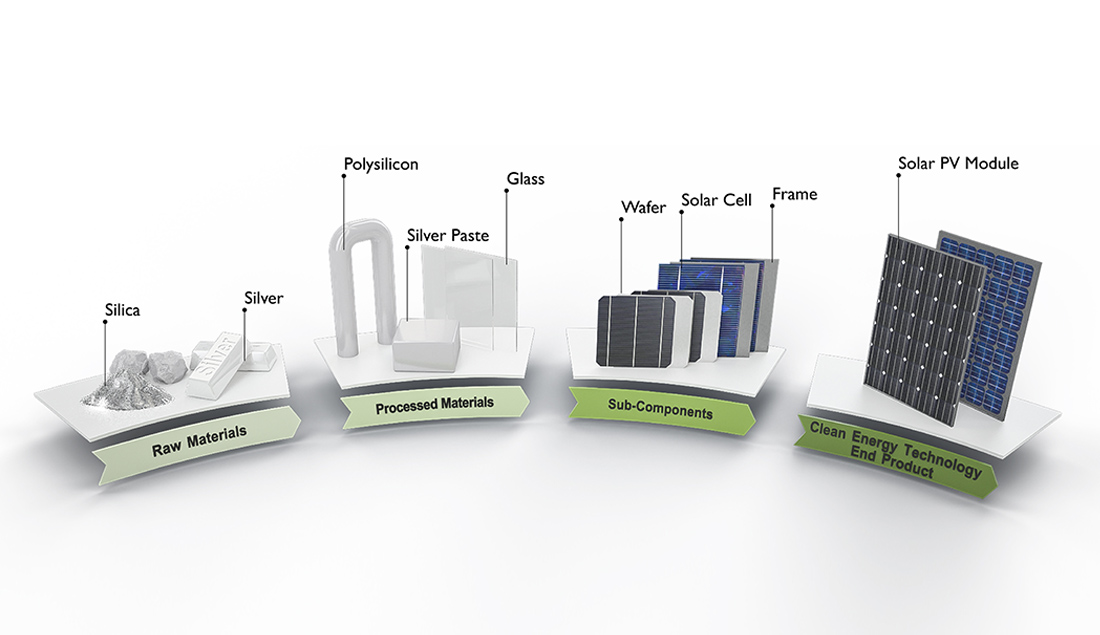
How will the new PV safeguard tariffs affect my company?
The new safeguard tariffs focus on imports of c-Si PV cells and modules [1] and are intended to improve the competitiveness of domestic PV module and cell manufacturing.

Currency Fluctuations and Trade
Economic theory indicates that prices and consumption are linked. When prices are low, people usually buy more of a desired good than when prices are high. Part of a price includes the value of the currency with which it is purchased.

New Article: The Synergy Value of Battery-Generator Hybrids
JISEA analysts recently published a new article in The Electricity Journal entitled Power Couples: The Synergy Value of Battery-Generator Hybrids. The article examines how battery hybrids—a battery system paired operationally with a generation system—can often provide more value than the individual systems alone.

New Article: System Dynamics of Polysilicon for PV
JISEA's Clean Energy Manufacturing Analysis Center (CEMAC) recently teamed up with Lexidyne, LLC and the Thayer School of Engineering at Dartmouth to publish a new article in the Sustainability journal, System Dynamics of Polysilicon for Solar Photovoltaics: A Framework for Investigating the Energy Security of Renewable Energy Supply Chains.

The Future's Bright for Oil and Gas and Renewables
Can the oil and gas industry work with renewable energy industry to bring about a clean energy future? That question was the basis for the recent workshop on the Nexus of Oil & Gas and Renewables in the Energy Future held at the National Renewable Energy Laboratory (NREL) and sponsored by the International Energy Agency (IEA)'s Gas and Oil Technologies Collaboration Program (GOTCP).

New Book: The Political Economy of Clean Energy Transitions
A new book, prepared by the United Nations University World Institute for Development Economics Research (UNU-WIDER) and co-edited by JISEA's Doug Arent, examines the political and economic factors of the transition from fossil fuels to clean energy. Published by Oxford University Press, The Political Economy of Clean Energy Transitions features a broad survey of relevant international experiences with a focus on both developing and developed countries. A downloadable copy of the book is freely available to anyone.

Dr. Pavel Kabat: Reconciling Economic Development and Environmental Sustainability
"Single-disciplinary science alone cannot adequately underpin policies and solutions to resolve major sustainability challenges," according to Dr. Pavel Kabat, Director General and CEO of the International Institute for Applied Systems Analysis (IIASA), a JISEA Research Affiliate .
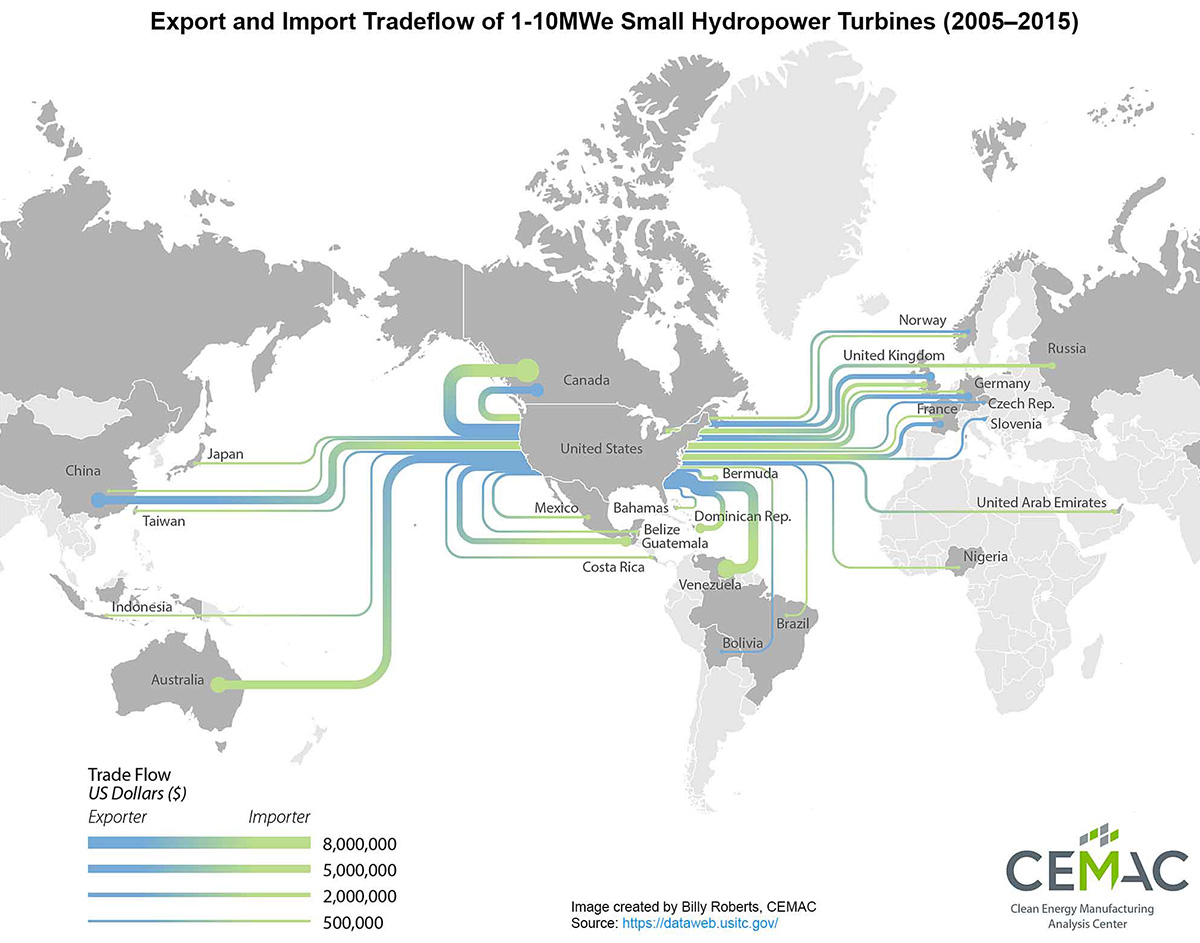
Hydropower Turbine Market and Trade Values: A closer look at small hydro turbines in the U.S.
Hydropower has been a long-term stable power generation source in the U.S. for decades, and research shows there is significant electricity generation potential from powering domestic, non-power hydro dams, which would utilize smaller turbines. This potential growth in the U.S. and international market demand for small hydropower turbines could offer greater opportunities for local and more energy-efficient manufacturing practices, both within the U.S. and for export.

Nuclear-Renewable Hybrid Energy Systems Can Reduce Greenhouse Gas Emissions from Industry and Support the Power System
Nuclear-renewable hybrid energy systems (N-R HESs) can enable low-carbon, on-demand electricity while providing reduced-emission thermal energy for industrial processes.

New JISEA Monograph Explores Potential of Low-Carbon Natural Gas for Transportation
The monograph analyzes economic and lifecycle greenhouse gas emissions and finds that low-carbon natural gas production potential in California could result in natural gas vehicle adoption by 2030.

JISEA Partner Offers Energy Systems & Technologies Course to Students Worldwide
The University of Colorado – Boulder, a JISEA founding partner, will offer an online course this spring, open to students around the world.

Study Traces Majority of Methane Emissions to Small Number of Sources
When it comes to natural gas leaks, only 5% of the sources are responsible for more than 50% of the total volume of leakage in the United States. This is according to a new study, Methane Leaks from Natural Gas Systems Follow Extreme Emissions.

Arent Named a Judge for 100&Change
Doug Arent has been named an expert judge for 100&Change. 100&Change is a MacArthur Foundation competition that will award one grant of $100 million for a proposal that promises to make real progress toward a significant problem.

UNU-WIDER Interviews Arent
United Nations University World Institute for Development Economics Research (UNU-WIDER) recently interviewed JISEA executive director Doug Arent.
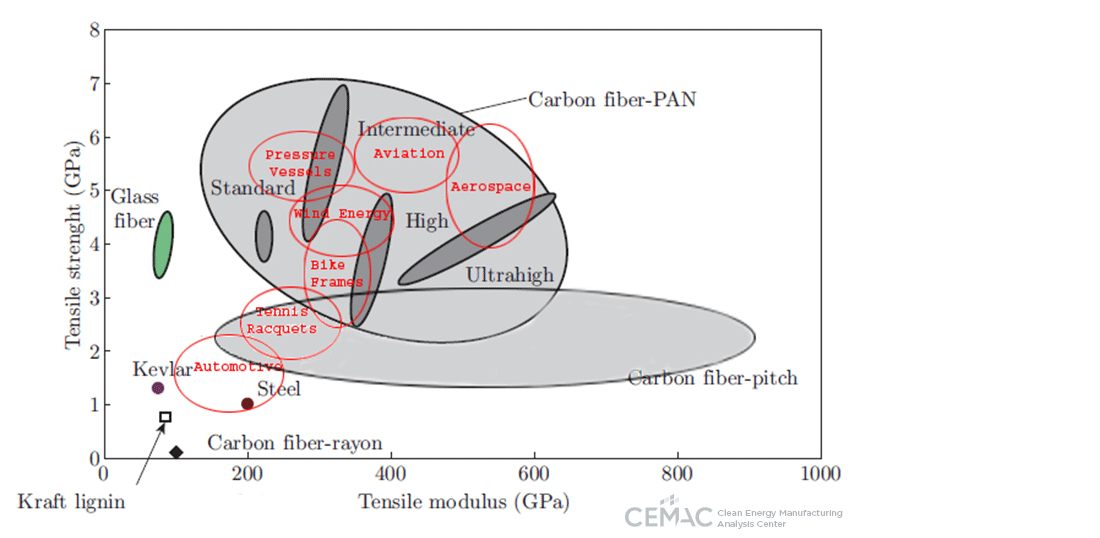
Bio-Based Carbon Fiber: An Exciting New Product, But There's Work to Do
Carbon fiber, also known as graphite fiber, is a lightweight, strong, and flexible material used in both structural applications (load-bearing) and non-structural applications (e.g., thermal insulation). The high cost of precursor materials and manufacturing, however, have kept carbon fiber in a niche market for applications that are mostly limited to high-performance structural products.

After Paris, the Smart Bet is on a Clean Energy Future
In a new GreenMoney article , JISEA's executive director Doug Arent highlights the changing power system and investment landscapes, the Paris commitments, and the state of play in the green investment market.
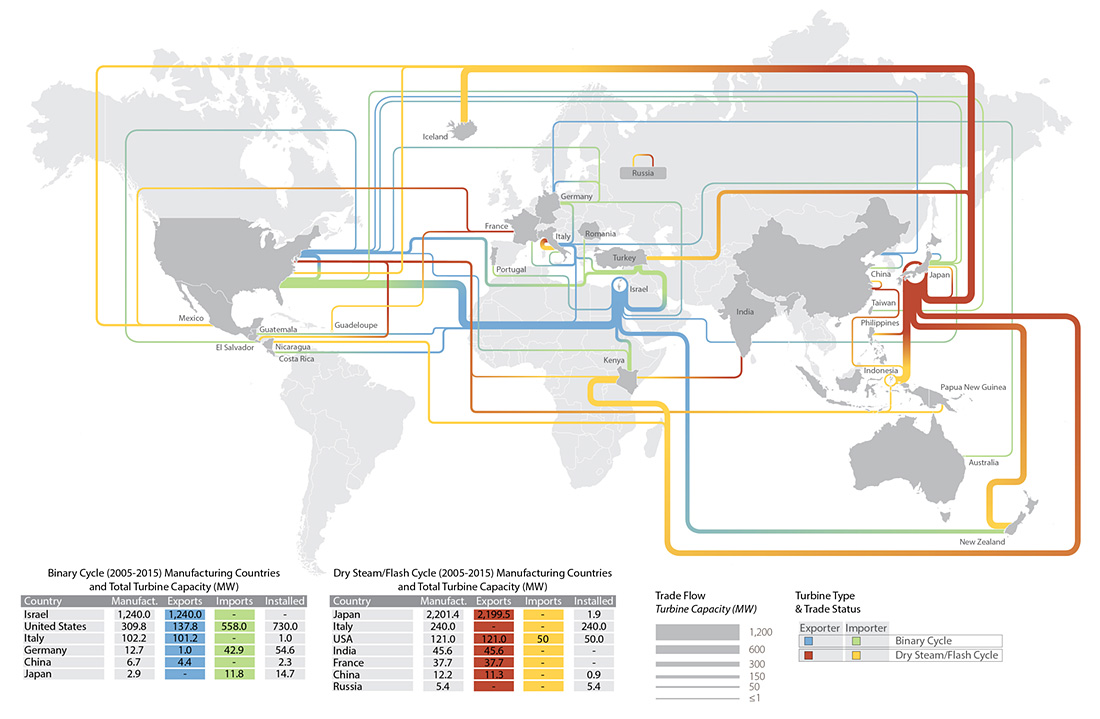
Geothermal Power Plant Turbines: First Look at the Manufacturing Value Chain
In the 10 years ending in December 2015, global geothermal power capacity increased by 4.4 GW to 13.3 GW. See the major players in turbine manufacturing in this first look at CEMAC's geothermal market analysis.

May 4 Webinar Discusses Spatiotemporal Considerations in Energy Decisions
Energy-related projects are developed in evolving natural and political environments, and their impacts and economics are neither fixed in time nor distributed evenly in space. Energy and environmental research has often focused on snapshots of particular regions, as many evaluation tools do not consider spatiotemporal factors.

April 20 Webinar Explores Environmental, Economic, and Technological Effects of Methane Emissions and Abatement
Methane accounts for approximately 10% of greenhouse gas emissions, and one-quarter of those emissions come from the natural gas sector.
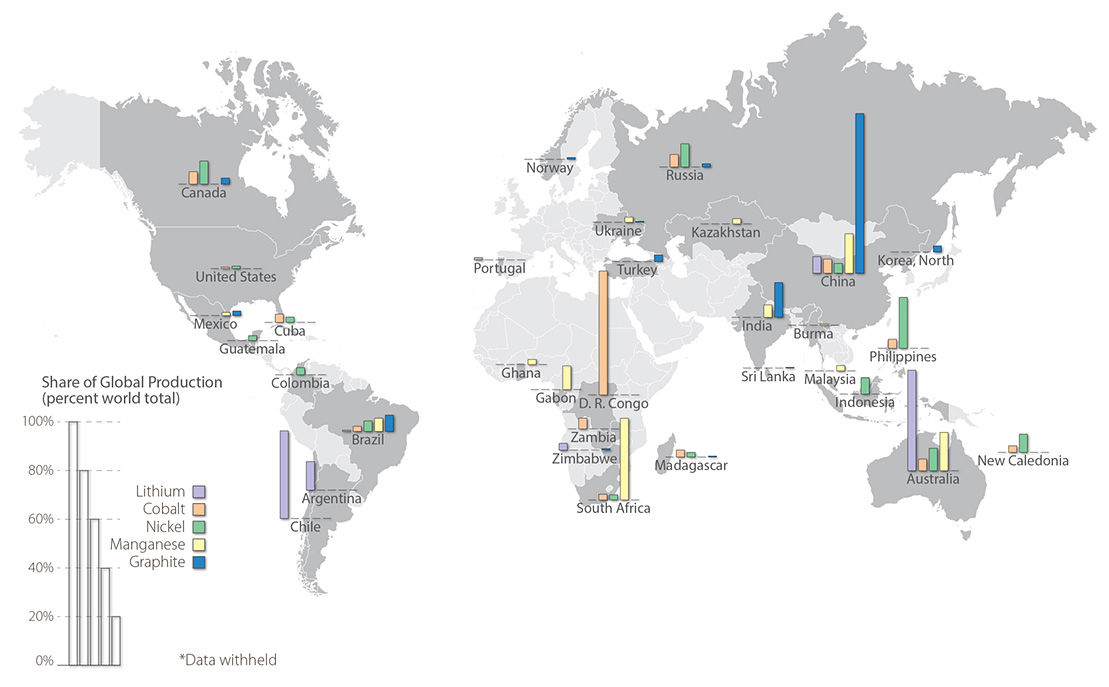
Lithium Ion Battery Key Elements — More Than Just Lithium
NREL's Emma Elqgvist shares early results of CEMAC's latest study on the manufacturing value chains of automotive lithium ion batteries, an essential part of the transition to a clean energy economy.

April 13 Webinar to Provide Insights on Natural Gas, Renewable Energy, and the Evolving Power Sector
Natural gas—in combination with other technologies, practices, and policies—is fundamentally reshaping the U.S. power sector. On April 13 at 10 a.m. MDT, researchers from the Joint Institute for Strategic Energy Analysis (JISEA) will present results from three recent studies on natural gas and the U.S. power sector.

Second Report in JISEA Monograph Series Explores Natural Gas as a Bridge to Sustainability
In the second in a monograph series,c JISEA examines the role of natural gas as increasingly strict carbon emission targets are imposed on the electricity sector. Do electricity sector trends mean that natural gas can serve as a bridge fuel, replacing the more carbon-intense coal generation in the near term and eventually phasing down in favor of zero-carbon emission resources?

Arent: Let's Get Gas Right
In a new blog post for the Cynthia and George Mitchell Foundation, JISEA executive director Doug Arent discusses possible synergies between renewable energy and natural gas. "While the two resources were historically viewed as competitors, natural gas and renewables are increasingly recognized as complementary," says Arent.

First Report in New JISEA Monograph Series Explores Trends in Natural Gas and the U.S. Electricity Sector
JISEA's latest report provides a high-level view of recent trends in the U.S. electricity sector, and how natural gas is affecting policy, operational, and investment decisions therein. This report is the first in a monograph series focusing on natural gas and the electricity sector.

Jill Engel-Cox Brings 25 Years of Clean Energy Experience to JISEA and the Clean Energy Manufacturing Analysis Center
Jill Engel-Cox joins JISEA today as deputy director. In this role, Engel-Cox will also serve as program director of the Clean Energy Manufacturing Analysis Center (CEMAC) . Engel-Cox brings a wide array of clean energy technology experiences to JISEA. As deputy director, Engel-Cox will define and lead JISEA analytical activities and help develop and administer programs.

Energy Institute at the University of Texas at Austin Joins JISEA as Research Affiliate
JISEA welcomes its newest Research Affiliate: the Energy Institute at The University of Texas at Austin. The Institute leverages the expertise of faculty to study critical energy policy questions, and is dedicated to broadening the educational experience of students by creating a community of scholars around energy issues of importance to Texas, the nation, and the world.

JISEA's Work Highlighted in NREL's Continuum Magazine
A new article in the National Renewable Energy Laboratory's (NREL's) Continuum Magazine spotlights JISEA's work on natural gas and renewable energy synergies. "JISEA…has the credibility and prestige to gather the most influential stakeholders and thought leaders for lively exchanges on the dynamics, issues, and opportunities facing the natural gas and renewable energy industries," the article says.

Arent Named to Sustainability Editorial Board
JISEA's Doug Arent has joined the editorial board of the journal Sustainability . Arent joins internationally-renowned experts on the "Energy Sustainability" section board . Sustainability addresses environmental, cultural, economic, and social sustainability of human beings.

Natural gas and renewable energy can help contribute to a low-carbon, resilient, and reliable electrical grid, say energy systems stakeholders
The workshops, convened by JISEA in collaboration with the Center for the New Energy Economy and the Gas Technology Institute, explored natural gas (NG) and renewable energy (RE) synergies in the U.S. power sector.

Renewable Electricity Technologies Anticipated to Become Increasingly Cost-competitive, According to JISEA Report
A new JISEA report sponsored by Ecomagination of General Electric examines cost reduction and technology improvement trends for a suite of renewable electricity generation options, and illuminates other factors that may influence their deployment through 2025.

Report highlights opportunities to build tomorrow's electricity sector
A new report published by the World Economic Forum offers guidance on transforming the electricity sector to a more sustainable, affordable, and reliable system. The Future of Electricity outlines recommendations for policymakers, regulators, and businesses in developed markets to attract needed investment. JISEA's Doug Arent contributed to the report

Arent on "Next-generation Utilities" Panel at Energy for Tomorrow Conference in Kuala Lumpur
At the International New York Times' "Energy for Tomorrow" conference, JISEA's Doug Arent presented a picture of the utility of the future during the "Next-generation Utilities" panel. The panel was chaired by Andrew Revkin, writer for the New York Times' Dot Earth blog, and included panelists from major Malaysian utilities. See Arent's presentation.

EVs Powered by Electricity from Natural Gas, Wind, Water, or Solar Power May Reduce Environmental Health Impacts
A new study published in the Proceedings of the National Academy of Sciences and edited by JISEA's Doug Arent assesses 10 alternatives to conventional gasoline vehicles and the life cycle air quality impact of each on human health. The study finds that electric vehicles (EVs) powered by electricity from natural gas or wind, water, or solar power are best for improving air quality.

Arent Named to Energy Policy International Advisory Board
JISEA's Doug Arent has been named to the International Advisory Board of Energy Policy. One of the top journals in its field, Energy Policy addresses policy implications of energy supply and use from various perspectives. Arent's work has appeared multiple times in the journal.

GHG from Electricity Produced from Shale Gas on Par with Conventional Natural Gas, Lower than Coal on Average
A new study published in the Proceedings of the National Academy of Sciences says estimates of life cycle greenhouse gas (GHG) emissions from electricity generated from shale gas are similar to those from conventionally-produced natural gas, and both energy sources, on average, emit approximately half the GHG emissions of coal-powered electricity.

JISEA Announces IRAAP Call for 2014/15 Proposals
The Joint Institute for Strategic Energy Analysis (JISEA) announces its 2014/15 research funding opportunity, the Innovative Research Analysis Awards Program (IRAAP) . The call for pre-proposals opens on July 7 and closes August 4, 2014. Accepted projects will focus on analytical research that works toward a more sustainable global energy economy

White House Enlists JISEA to Help Bolster Co-Investment in Renewable Energy and Natural Gas
The White House honored solar energy deployment Champions of Change from across the United States during a full-day event April 17. The event featured panels discussing the successes of community leaders, innovators, educators, and organizers in creating opportunity for solar power and in driving policy changes at the local level to advance solar deployment in the United States.
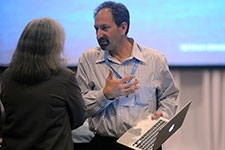
Arent a Lead Author on IPCC Report on Climate Change Impacts, Adaptation, and Vulnerability
The Intergovernmental Panel on Climate Change (IPCC) issued a report today that says the effects of climate change are already occurring on all continents and across the oceans. The world, in many cases, is ill-prepared for risks from a changing climate. The report also concludes that there are opportunities to respond to such risks, though the risks will be difficult to manage with high levels of warming.

New Article Discusses Cyber Security and Critical Energy Infrastructure
A new article published in The Electricity Journal examines the implications of increased cyber attacks on companies providing critical energy infrastructure. As power networks and, to a certain extent, oil and gas infrastructure, are becoming increasingly integrated with information communication technology systems, they are growing more susceptible to cyber-attacks.

Study on Methane Emissions from Natural Gas Systems Indicates New Priorities Study findings published in Policy Forum of Journal Science
A new study published in the journal Science says that the total impact of switching to natural gas depends heavily on leakage of methane (CH 4 ) during the natural gas life cycle, and suggests that more can be done to reduce methane emissions and to improve measurement tools which help inform policy choices.

Business Opportunities for Uniting Natural Gas and Renewables Abound at System and Sector Levels
To support the U.S. need for cleaner energy sources now and in the long term, a new study by the Joint Institute for Strategic Energy Analysis (JISEA) identifies compelling business models that build from the synergies of two abundant, domestic forms of energy: natural gas and renewable energy.

JISEA Deputy Director Contributes Forward to Energy Architecture Index
JISEA Deputy Director Morgan Bazilian contributed a forward to the World Economic Forum's annual Global Energy Architecture Performance Index Report, which ranks the energy systems of 124 countries according to economic, environmental, and energy security indicators.

NPR Interviews Arent for Report on Energy and Climate Change
In a report airing December 2 on National Public Radio's All Things Considered , JISEA's Doug Arent discussed findings of NREL's Renewable Electricity Futures Study , which he co-authored.

Morgan Bazilian Named to JREF Information Network
The JREF Innovation Network was established in 2012 to facilitate the exchange of information and proposals geared toward the evolution of Japan and the world into a sustainable society based on renewable energy. Network members are experts in renewables, energy efficiency, and climate change policies.

JISEA-funded Analysis Published in Scientific Journals
Two new works funded through JISEA's Innovative Research Analysis Award Program (IRAAP) have been published in scientific journals. These studies identify several marginal land categories suitable for renewable energy development, and calculates the technical potential for various technologies on these lands.

Paper Reviews Wholesale Electricity Market Design for 21st Century Power Systems
Variable renewable energy resources comprise an increasing share of electricity generation globally. At the same time, opportunities for addressing the variability of renewables are being strengthened through advances in smart grids, communications, and technologies. A key challenge of merging these opportunities is market design—creating incentives and compensating providers justly for attributes and performance that ensure a reliable and secure grid.
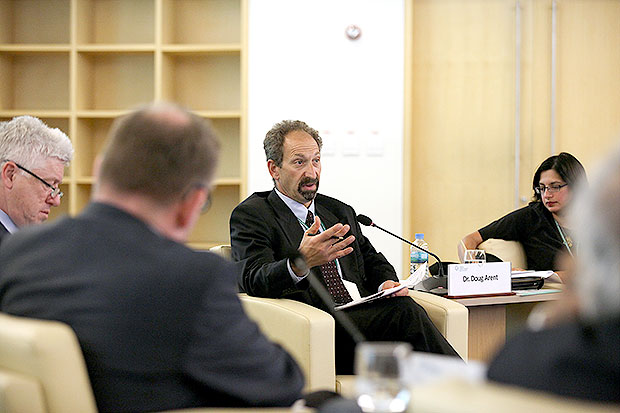
Doug Arent Addresses Global Green Growth Summit
Dr. Doug Arent, executive director of the Joint Institute for Strategic Energy Analysis, participated in a panel discussion at the Global Green Growth Summit 2013, which was held on 10 – 11 June, at Songdo Convensia, Incheon, Republic of Korea.

Arent Joins Editorial Board of Scientific Journal
The journal Mitigation and Adaptation Strategies for Global Change: An International Journal Devoted to Scientific, Engineering, Socio-Economic and Policy Responses to Environmental Change has named JISEA Executive Director Doug Arent to its editorial board.

JISEA and Precourt Institute for Energy Map Natural Gas Research Agenda
In recognition of the major transitions occurring within the U.S. energy economy, the Joint Institute for Strategic Energy Analysis (JISEA) and Stanford University's Precourt Institute for Energy (PIE) engaged diverse energy system stakeholders in a discussion about robust, objective, and timely research priorities relating to natural gas.

Qatar Forum
Joint Institute Executive Director Doug Arent participated in the Doha Carbon and Energy Forum as a panelist, and helped facilitate components of the event. This forum, which was invitation-only, included about 150 experts from the region and internationally. The forum was organized by the Qatar Foundation in conjunction with Texas A&M University at Qatar.

Leadership Summit
Joint Institute Executive Director Doug Arent recently participated in the annual Blouin Creative Leadership Summit in New York City on September 22-23. The summit brings together 120 leading figures in the areas of science, technology, culture, business, and politics.

Morgan Bazilian to Expand JISEA's Focus on Seminal Energy Systems Analysis
Morgan Bazilian will join the Joint Institute for Strategic Energy Analysis (JISEA) as Deputy Director. In this new role, Bazilian will define and lead JISEA analytical activities and help develop and administer programs. He will also join the senior management team of NREL.

Energy Policy Features Article Based on JISEA-Funded Research
The May issue of Energy Policy featured an analysis of nuclear and renewable energy synergies, which was based on work funded through JISEA's Innovative Research and Analysis Award Program (IRAAP). The article, " Decarbonizing the Electric Sector: Combining Renewable and Nuclear Energy using Thermal Storage," was co-authored by NREL's Paul Denholm and Charles Kutcher, Jeffrey King of Colorado School of Mines, and Paul Wilson of the University of Wisconsin-Madison.

JISEA and American Clean Skies Foundation Host Forum on Creating a Cleaner U.S. Electricity Sector
The Joint Institute for Strategic Energy Analysis (JISEA) and the American Clean Skies Foundation (ACSF) hosted the third Clean Energy Regulatory Forum (CERF III) to explore ways to advance clean energy and energy efficiency in the rules and procedures of public utility commissions, regional transmission organizations, and the Federal Energy Regulatory Commission.

JISEA Hosts 2012 Annual Meeting
JISEA, a transdisciplinary global research group focused on the nexus of energy, environment, finance, and society, addresses transformational trends in the global energy economy at its annual meeting, March 7–8 in Golden, Colo. The second annual meeting brings together key stakeholders from across the financial, legal and industrial sectors as well as academic research teams. See press release for details.

JISEA Report Examines Impact of Natural Gas on U.S. Electric Power
The Joint Institute for Strategic Energy Analysis (JISEA) released the first report in a series of studies on natural gas and the U.S. energy sector. Entitled " Natural Gas and the Transformation of the U.S. Energy Sector: Electricity," this report provides a new methodological approach to estimate natural gas related greenhouse gas (GHG) emissions, tracks trends in regulatory and voluntary industry practices, and explores various electricity futures.

IPCC Appointment
The Intergovernmental Panel on Climate Change (IPCC) has named Joint Institute Executive Director Doug Arent as a lead author for its Fifth Assessment Report (AR5) cycle. The IPCC's work on AR5 is divided among three Working Groups, and Arent will be one of the Coordinating Lead Authors (CLA) of Chapter 10 for Working Group Two.

December 14, 2010—" Modeling and Simulation Aspects of Topological Design of Distributed Resource Islands ."
During this presentation, Sid Suryanarayanan of the Department of Electrical and Computer Engineering (ECE), Colorado State University; and Sriram Sankaranarayanan of the Department of Computer Science (CS), University of Colorado, gave an overview on modeling distributed generation.

September 13, 2010—" Energy Efficiency in Buildings and Industry: A Low Carbon Future ."
Energy efficiency has had a substantial impact on U.S. energy consumption since the 1970s. Some products (e.g., refrigerators, clothes washers, central air conditioners) have made dramatic (50%–70%) energy-use improvements over the years, resulting from a combination of technology innovation and policies.

August 5, 2010—" From Trades to Turbines: The Art and Science of Wind Energy Resource Assessment ."
During the past 20 years, the Risø-DTU National Laboratory for Sustainable Energy has been one of the world's leading institutions for wind resource assessment. Using a combination of measurements and fast-flow modeling, they developed the European Wind Atlas in 1989.

July 12, 2010—" The Status of CO2 Capture and Storage Technology ,"
Edward Rubin, of Carnegie Mellon University, gave an overview of carbon dioxide (CO 2 ) capture and storage (CCS) technologies applicable to combustion-based and gasification-based electric power plants that are fueled by coal, natural gas, biomass, or other carbonaceous fuels.

May 14, 2010—"Renewable Energy Integration and New Storage Concepts."
This seminar, presented by Michael Sterner of Fraunhofer Institute, discussed linking the grid to renewable energy technologies. Germany is planning to increase the use of renewable energy (RE) to a full 100% supply. Many challenges have been solved, and many — such as energy storage — are still ahead.
